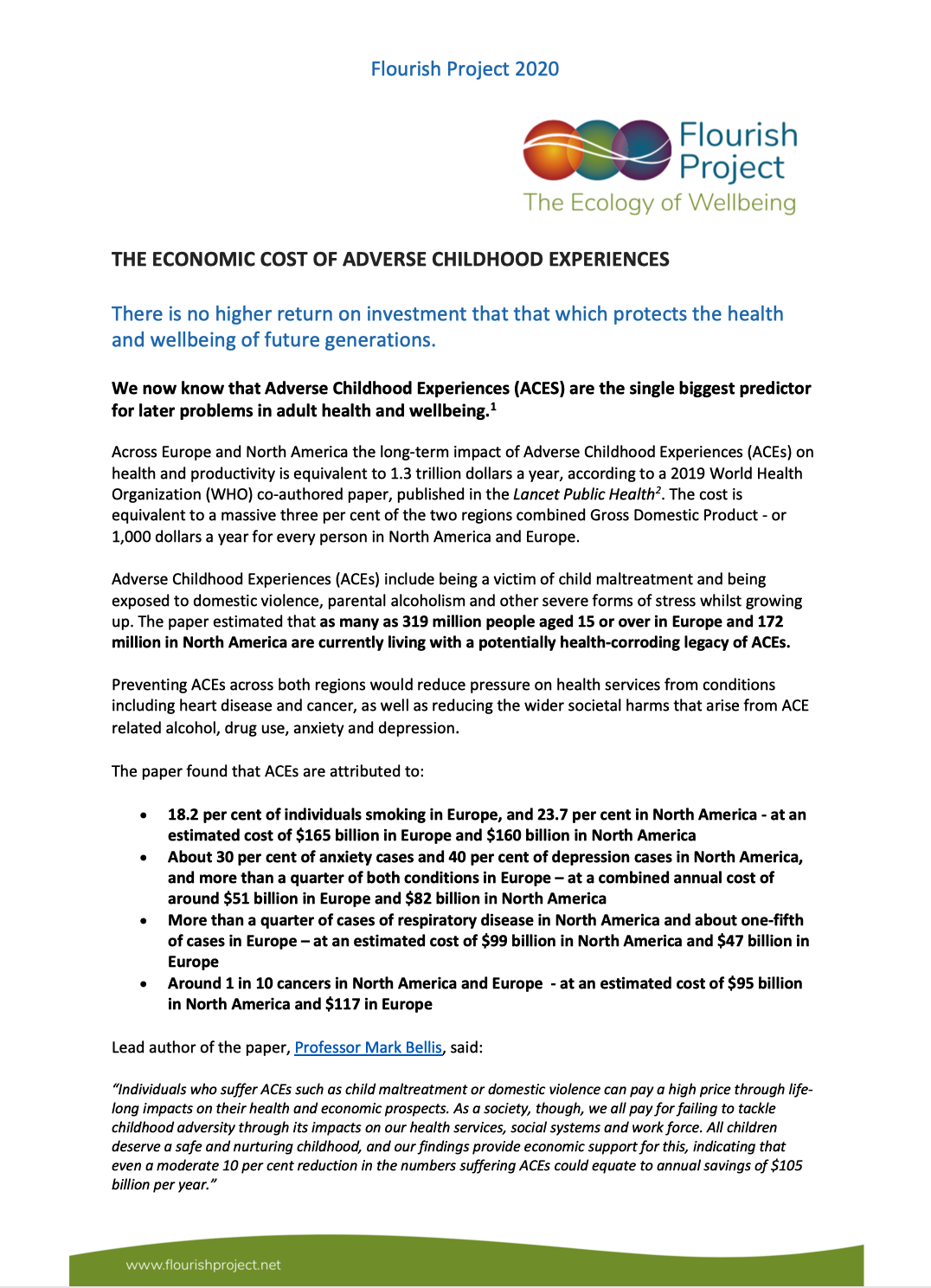|
There is no higher return on investment that that which protects the happiness and wellbeing of future generations
We now know that Adverse Childhood Experiences (ACES) are the single biggest predictor for later problems in adult health and wellbeing.
Across Europe and North America the long-term impact of Adverse Childhood Experiences (ACEs) on health and productivity is equivalent to 1.3 trillion dollars a year, according to a 2019 World Health Organization (WHO) co-authored paper, published in the Lancet Public Health2 . The cost is equivalent to a massive three per cent of the two regions combined Gross Domestic Product - or 1,000 dollars a year for every person in North America and Europe. Adverse Childhood Experiences (ACEs) include being a victim of child maltreatment and being exposed to domestic violence, parental alcoholism and other severe forms of stress whilst growing up. The paper estimated that as many as 319 million people aged 15 or over in Europe and 172 million in North America are currently living with a potentially health-corroding legacy of ACEs. Lead author of the paper, Professor Mark Bellis, said “As a society, though, we all pay for failing to tackle childhood adversity through its impacts on our health services, social systems and work force. All children deserve a safe and nurturing childhood, and our findings provide economic support for this, indicating that even a moderate 10 per cent reduction in the numbers suffering ACEs could equate to annual savings of $105 billion per year.” So the real question is not whether we can afford to invest in early childhood health and wellbeing, but whether we can afford not to Read more |

